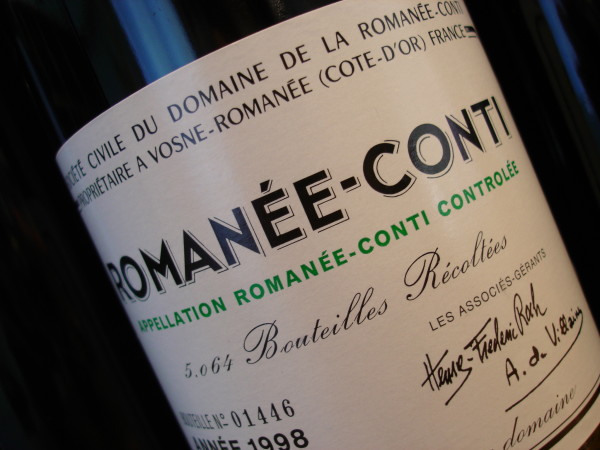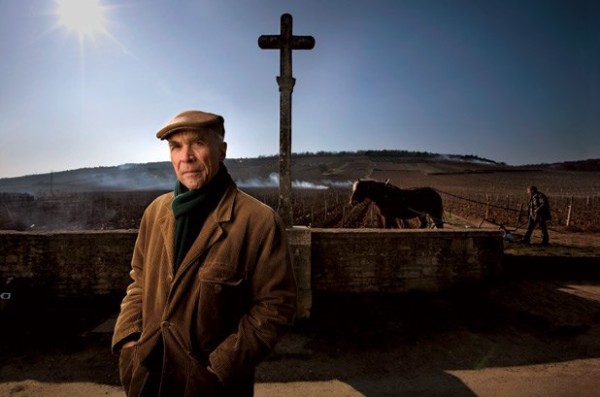Book Review
Shadows in the Vineyard: The True Story of a Plot to Poison the World’s Greatest Wine
By Maximillian Potter

We know from prison movies that inmates who really ought to be spending their time hatching plots to amend their lives are more likely to use their enforced leisure to meditate new and better crimes.
So it was with Jacques Soltys, aged 57, a second-generation French citizen of Polish descent and career lowlife who, jailed for nine years after conviction for a botched kidnapping scheme, decided that he had aimed rather too low in seizing the aristocratic wife of a well-to-do Bordeaux winemaker and holding her, unsuccessfully, for ransom. How much cleverer – and more remunerative – to take hostage vines planted in the most famous and cherished vineyard in all of France and reap a million euro payday for not poisoning every last one of them?
It’s a bit hard to communicate to those who aren’t lovers of red Burgundy the reverence, even awe, in which Romanée-Conti, the vineyard that was Soltys’s target, is held. A bit less than 2 hectares (about 4 acres) in area, it annually produces a few thousand cases of some of the most sought-after wine in the world. Prices in the Boston area for the current release start at around $5,000 per bottle but some vintages sell for much more. The Domaine de la Romanée-Conti owns this vineyard outright and portions of other grand cru vineyards nearby. If you were looking to shake down people who could afford to pay you real money, you could scarcely do better than this, and Soltys, once released, lost little time in putting his plan into action.
In the fall of 2010 he surreptitiously dug and carefully camouflaged an underground workroom for himself in the forested land at the edge of the famed vineyard in the tiny village of Vosne-Romanée. In a series of nighttime sallies from it Soltys drilled small holes in the trunks of a few vines and inserted a length of black wire. The maneuver wouldn’t kill a vine, but it would be enough to show his intended victim, Aubert de Villaine, the wideky respected director of the Domaine and, according to the author one of the richest men in France, that he meant business. “If I can drill your vines without your knowing it, I can poison them at will” was the unsubtle threat. To call the scheme harebrained would be an insult the intellectual acumen of rabbits.

When the police finally nab Soltys (spoiler false alarm: I’m not giving the details of the investigation) and the story surfaces, Vanity Fair dispatches veteran journalist Maximillian Potter, then editor of a Denver magazine and now senior media advisor to Colorado governor John Hickenlooper, to Burgundy to cover it. His 6000 word report appeared in the magazine’s May 2011 issue under the title “The Assassin in the Vineyard.” “Shadows in the Vineyard” is based on that article, but stretching the story out to book length only makes the original — and the editing at Vanity Fair — look brilliant by comparison.
Potter’s effort for the magazine is a tightly-written and engaging story that hits all the right notes — a bit of the history of Burgundy and the development of its vineyards under centuries of monastic custodianship, a peek at the chain of ownership of the property from the time of the cunning, duplicitous Prince de Conti, confidante of Louis XV, to the present day — but Potter’s extended treatment of the l’affair Soltys in “Shadows” doesn’t move at the clip or exhibit the brio of the magazine piece.
Part of the problem is that a precisely-timed, impeccably-executed gambit of the sort we know from heist films like Rififi, or Ocean’s Eleven isn’t remotely within reach of the schlubby Soltys, who hasn’t a shred of roguish charisma and elicits neither our sympathy nor grudging admiration for a clever guy breaking bad. Nor is there much here that you could call suspense.
But there’s more wrong than this. The history is potted, the material on the background of de Villaine drawn-out and almost embarrassingly obsequious (he is incessantly referred to as “The Grand Monsieur”), and the lengthy excursus into the 18th century intrigues of the Prince de Conti feels like filler. Add to this some mangled translation of French (one howler has Napoleon leading the armies of the restored Bourbon monarchy) and prose that seems aimed at young adults, and what you have something considerably less that you hoped for.
There is an element in this otherwise unsatisfying book that sticks with you: the dread that somewhere out there a mind far more clever and well-capitalized than that of Jacques Soltys may be meditating using his crime as a template in a venture that has more of a chance of succeeding.
“It never ceased to amaze him,” Potter says of Soltys, “that so much value was just left there unprotected.”
This article was originally published in the Boston Globe on July 29, 2014
Reach me at stephenmeuse@icloud.com